František Kovářík
出生 : 1886-10-01, Pilsen, Czech Republic
死亡 : 1984-10-01

Himself

prof. Hrbolek
This comedy is about one average family. The father works as master in the factory and his son is studying on high school. One day father must start to visit the evening school. It's the same school as his son visiting. The lives both students are connecting together. The son must teach the math and physics his own father. The father getting to know, that the life of the students is not simple as he supposed.

Komárek st.
The Lavicka's, a Czech family from the city, rents a house in the country with the option to buy. However, old Mr Komarek seems reluctant to sell the house as they agreed.

Kinoautomat was the world's first interactive movie, conceived by Radúz Činčera for the Czechoslovak Pavilion at Expo '67 in Montreal. At nine points during the film the action stops, and a moderator appears on stage to ask the audience to choose between two scenes; following an audience vote, the chosen scene is played.

Three detective stories, three different views of life and death... Collection of three horror short stories.

Hrích boha (God's Sin) is Agnieszka Holland's poetic vision of the world as a trap, based on the novel by Isaak Babel.

Old Man (voice)
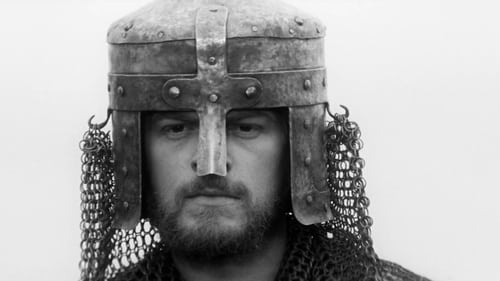
Shepherd
Cast out by his father, young Ondrej joins the Order of the Teutonic Knights, where he is raised by strict monk Armin. After years of hardship, Ondrej escapes from the Order when he is wrongly punished, and sets out for his former home. Arriving to discover his father to be dead, Armin now not only assumes control of his fathers properties, but seeks to marry his former stepmother.

(uncredited)
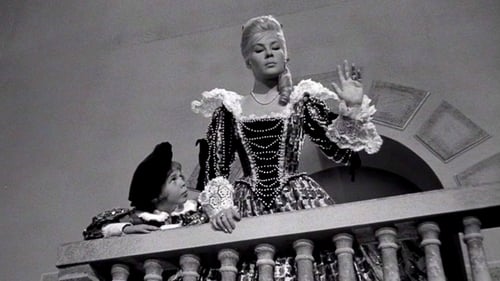
Jester
An anti-war black comedy set during the Thirty Years' War. The film combines live action with animation to suggest the artistic style of the engraver Matthäus Merian.

(segment "Optimista")
A film in five episodes, all based on an attempt to show the life of young people today, their feelings and relationships, their behaviour in public and private life.

(voice)
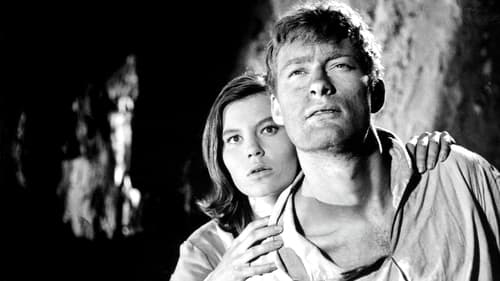
Pastýř ovcí
A small town is one day visited by a priest who is there on a secret mission. He is a member of the Inquisition sent to investigate the activities of a local miller. The miller and his son are the descendants of an old family whose ancestral home burned down a century ago, but was rebuilt from scratch. The miller inherited much of his knowledge about the land, water, and a building's stability from generations of family experience. His reputation for finding water and predicting when a structure might collapse have come to the attention of the Inquisition -surely he must be in league with the Devil.

Traveller
Based on a novel by Maria Majerova, this well-photographed but routine romantic drama is directed and co-scripted by Vaclav Krska. Set in a more old-fashioned time, the story centers around Lenka (Suzana Fisarskova), a young woman with a domineering, psychologically abusive father. When Lenka falls in love she suffers the ultimate injustice when her father and her family forbid her to marry the man. They see no advantage in such a union and want her to marry a wealthy local landowner instead, for obvious reasons. But Lenka is not as submissive as they think and she runs away to the city to look for the man she loves -- only to find a serious problem, though a surmountable one, is waiting for her.

This early short by Jaromil Jireš anticipates the formal and stylistic experimentation that would characterize VALERIE AND HER WEEK OF WONDERS.
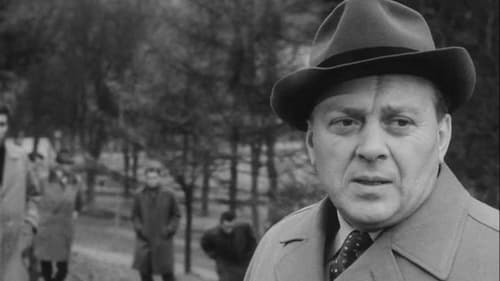
old Mr. Mensík
“A bored housewife, a husband who married her for show, and a stupid boy who is full of himself because he is dating a Swiss woman.” The words of Inspector Tůma sound like they’re from a European melodrama, but in fact they come from a Czechoslovak crime story. A pair of detectives, counterfeit medicine, the high-society setting of a Karlovy Vary hotel, and Oldřich Nový as the aging hotel manager Kraus.

In a wooden hut used as a canvassing center, members of a children's puppet-theatre group are rehearsing for a production about a journey to the Moon. The goings-on inside the hut and outside are being closely followed by amateur detective Pepik Barnabás. He, however, is the first to be under suspicion when a trunk containing puppets goes missing. The children follow him but, when they catch up with him, they discover he hasn't got it. Pepík offers to help them in their search.

Driving teacher
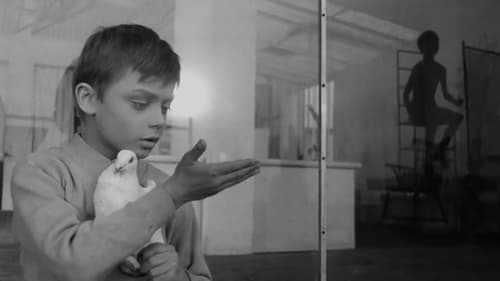
Old man
A poetic film about a dove getting lost on its way to Prague getting shot down by a paralyzed boy. An artist who finds the dove becomes friends with the boy. Together they take care of it bringing it back to recovery.

Behzad
A spring is hidden in the Iron Mountain but the people of Arzen cannot get to it and they are suffering from thirst.

Vassal
The second part of the revolutionary Hussite trilogy takes place in the years 1419-1420.

village teacher
Venice Film Festival 1955
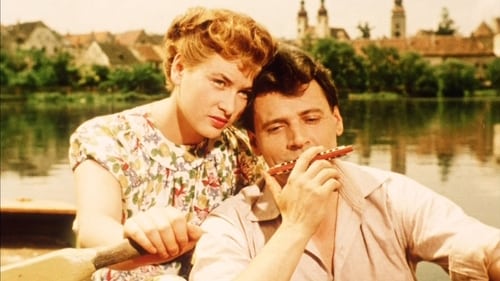
Jindřich Kebort, soustružník

venkovský stařík
Jan Hus is a 1954 Czechoslovak film directed by Otakar Vávra. It is the first part of the "Hussite Revolutionary Trilogy", one of the most famous works of the Czechoslovak director, completed with Jan Žižka (1955) and Proti všem (Against All Odds, 1957).

Dog's Heads (Czech: Psohlavci) is a 1955 Czech drama film directed by Martin Frič, based on the novel of the same name by Alois Jirásek. It was entered into the 1955 Cannes Film Festival.

Team Member
Writers: Jaroslav Zrotal

Miller
It's very human and nice story about lofty princess (her father is amiable but incapable - unforgettable performance of S. Neumann) and good, nice, kind and well-principled young king (prince) who tries to make tender her calm heart to get married with her. After being refused (she's very capricious), he conclude to make her better. He start to work as a gardener at her castle (in secret) and successively bring she to her senses...The story continues when already reformed princess and the young king (she learn about his real identity later) have to take refuge from troops, that princess father (old king) has sent (of course he took a bad and mean counsellors advice). They have to take shelter by several ordinary and poor families, which are always very friendly and give them a help... Of course the tale has happy end.

Tomáš Fanfule

Kolarik
Czech drama film.

Farár

Správce hriste

director schools
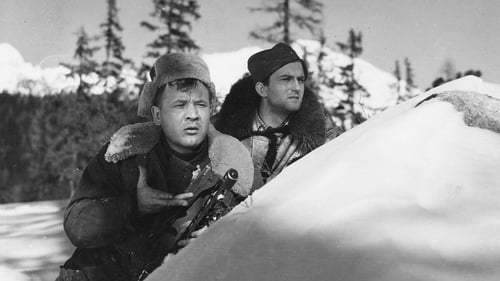
A young doctor and a group of injured are hiding in an underground shelter and are liberated by Soviet soldiers.

Juraj Čup
Five crime stories connected by the narration of police superintendent Bartosek.

At the end of the First World War, Nikola Shuhai and his friend from the army desert. On the way home, to the village of Kolochava, they both find refuge with baby Jaga. Jaga mixes them a drink to protect them from the deadly bullets. The bachelors must promise to marry her daughters in exchange for a drink, or they will be punished. Nikola finds his home village in poverty. He stands against the powerful and the rich, and they turn the gendarmes against him. Nikola hides from them in the woods, where he will remain even after the end of the war, because nothing has changed for the villagers. Out of poverty and hopelessness, other men join Nikola and together they raid the wealthy. Nikola distributes the obtained booty to the poor and needy, who see him as their protector and hero.
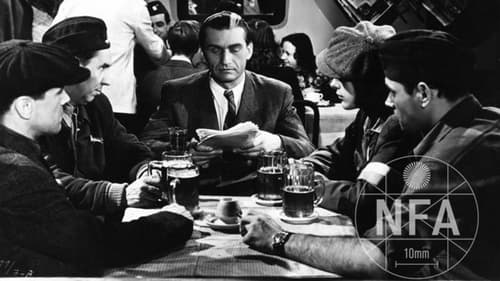

Ptáček
Leopold Kohák married a rich widow a long time ago and now has nothing to do compared to his energetic wife. He's growing old and troubled by the fact that he betrayed his first love Emča and his beloved river Sázava where he spent his childhood and youth. A visit from an old friend Lebeda brings it all back to him. After a nervous breakdown Leopold secretly visits his home instead of going to the spa. A wandering tramp suggest Leopold should bathe in the magical waters of the Sázava, and slowly his youth returns to him.

Prague, the beginning of the 17th century. Rozina falls in love with Italian glass worker Nikolo, but after returning home, she gets a message that will never come to Prague. She falls for the promise of an older man to marry her, but when Nikolo does return, the tragic fate of Rozina is sealed.

Mist on the Moors examines fates of just about a few people. Their stories are outlined in a short space of time and are a symbolic representation of the drama of life, struggle for justice, human cognizance and the healing power of love. One of the most important components of the film is the nature, which ceases to be a mere stage for its plot—it serves almost as an autonomous plot agent. The movie landscape is a precisely defined and localized one. Only the South Bohemian ponds can serve as the right environment for development of such earthy and typically human stories as we encounter in the Mist on the Moors.

zloděj

děda bylinkář

Zikmund

bylinkář
Ríša, a student of law, neglects his studies in favour of parties and pranks. His angry father refuses to continue helping him out of his debts. Ríša, however, is not entirely beyond hope. He decides to go and stay for a while with his uncle, a priest, who lives in Moravia, in order to prepare for his exams. He meets Helenka, the timid daughter of the local gamekeeper, at a village ball and is enchanted by her. The days pass and their idyllic relationship begins to tire Ríša. He begins to tell Helenka about his former debauched life the about the broken hearts of beautiful women. Helenka is hurt and refuses to see Ríša anymore. His uncle, the priest, is incensed at his behaviour and orders his nephew out of the house. Ríša tries desperately to find Helenka so he can make it up to her.

lichvář Fidrmuc

Černý

Pírko

When the yacht of her former lover Mario Tudor arrives in Split, widowed Countess de Milesi, plagued by financial troubles, is hell-bent on selling him a fake copy of an expensive painting.

Antonín

Hejda

Trojan

František Fiala

Míšo
Venice Film Festival 1938

Zuska

Říha

František Borský

Alderman Lisal

Hukal
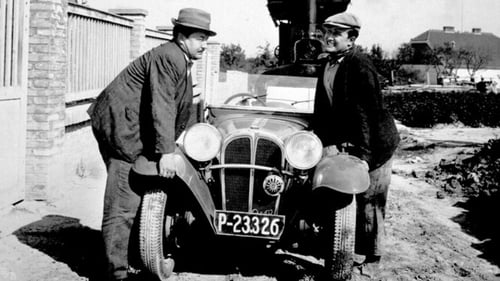
A Milk-Cannery baron, Jakub Simonides, is broken by the Canned Milk-Trust and, in his wanderings with a worker, Filip Kornet, he discovers he still owns a half-finished apartment-house. They rally the workers and complete the building for use as a collectivist dairy. The cooperative flourishes and after a chase/pursuit with the police, pratfalls, slapstick and various crashes, the workers buy out the Milk-Trust.

sluha Cyril

spiritista Šoltys

Pavel

The story of high school students, talented Jan and Karel, who has a problem with math. Their life affects pedantic professor of mathematics Klec, that goes with them on a school trip, which escalates the conflict between them. Jan wants to escape, but Professor Donat will discourage him. Karel fails the exam of mathematics and decides to commit suicide.

Mimi lives with her parents and the maid Fanka in a villa near the forest. One day, a gamekeeper comes to court Mimi when her parents are away.

St. Wenceslas (Czech: Svatý Václav) is a 1930 Czechoslovak historical film about Saint Wenceslas.[2] It was the most expensive Czech film to date,[3] with the largest set constructed in Europe to accommodate an all-star cast of over a hundred, together with 1,000 extras for the lavish battle scenes.




























